#Dungeon Master's Guide
Text
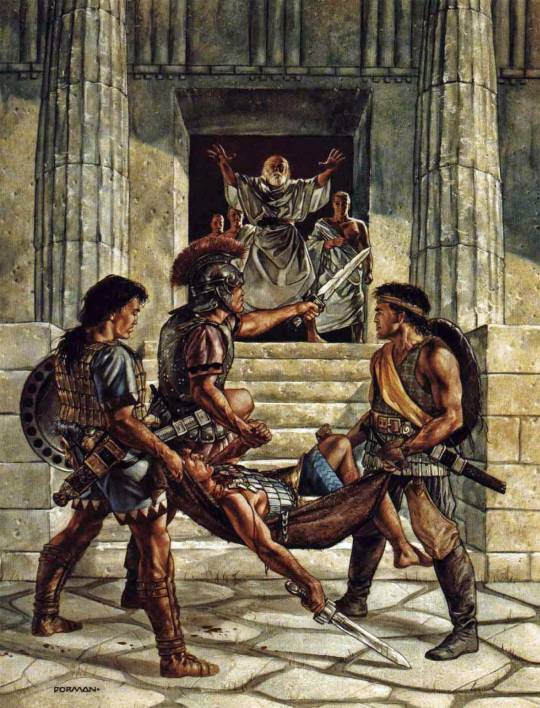
Help, our friend has been stabbed 23 times in the curia by persons unknown (David Dorman, from the AD&D 2e Dungeon Master's Guide, TSR, 1989)
#If you've ever been stabbed in the curia you know just how painful that can be#D&D#David Dorman#Dungeons & Dragons#ancient rome#Rome#Romans#cleric#temple#healer#dnd#AD&D 2e#DMG#Dungeon Master's Guide#D&D 2e#Dungeons and Dragons#TSR
322 notes
·
View notes
Text
NPC: what do you call yourselves, brave heroes?
party: oh, us? we're "group therapy."
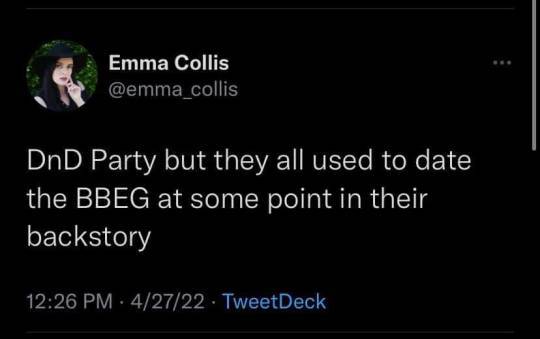
#dnd memes#dnd#ttrpg#cr memes#bardic inspiration#dungeons and dragons#dungeon master's guide#dungeon master
864 notes
·
View notes
Text
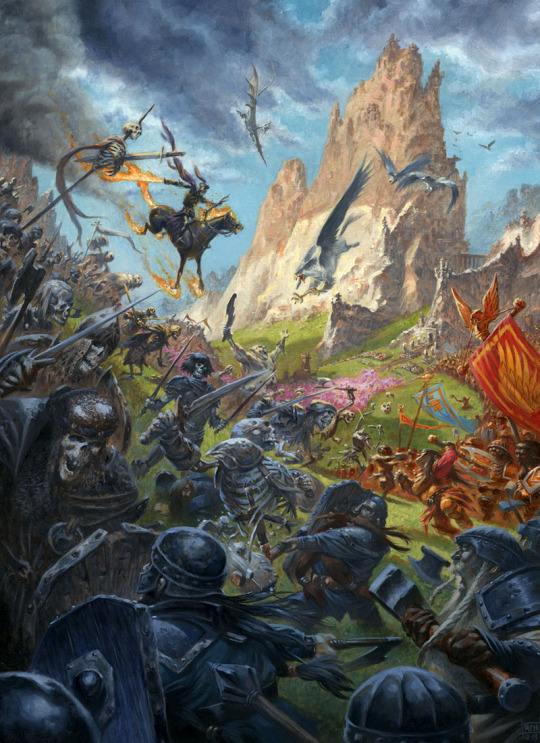
Dungeon Master's Guide (5th Edition) - Battle! by Ralph Horsley
#Dungeons and Dragons#Dungeons & Dragons#D&D#5th Edition#Dungeon Master's Guide#Battle!#Fantasy#Art#Ralph Horsley#wizards of the Coast
118 notes
·
View notes
Text
Btw here's some Dungeons & Dragons books for free
Link here, it's got:
Player's Handbook
Dungeon Master's Guide
Monster Manual
Monsters of the Multiverse
Mordenkainen's Tome of Foes
Volo's Guide to Monsters
Xanathar's Guide to Everything
Tasha's Cauldron of Everything
Explorer's Guide to Wildemount
Sword Coast Adventurer's Guide
Eberron Rising from the Last War
#dnd#dungeons and dragons#dnd 5e#dungeons and dragons 5th edition#Tasha's cauldron of everything#mordenkainen's tome of foes#dnd books#dungeons and dragons books#player's handbook#dungeon master's guide
135 notes
·
View notes
Photo
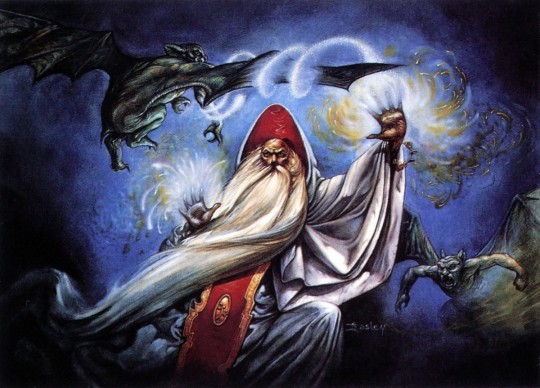

Advanced Dungeons & Dragons - art by Jeff Easley (1978)
#jeff easley#advanced dungeons & dragons#70s fantasy art#player's handbook#dungeon master's guide#ad&d art#magic-user#sorcerer#seventies#1978
230 notes
·
View notes
Text
Eddie "reads the instructions" Munson vs Steve "fuck the instructions" Harrington
#But lemme explain#I know Eddie is a reckless little shit#But he has to go through the dungeon master guide n a bunch of other books. He READ lotr. Ofc he reads the instructions#They're camping? Steve is fighting for his dear life while he reads the tent instructions#They bought a microwave? Steve is already screaming. Eddie is learning how to unfreeze chicken#Steddie
1K notes
·
View notes
Text



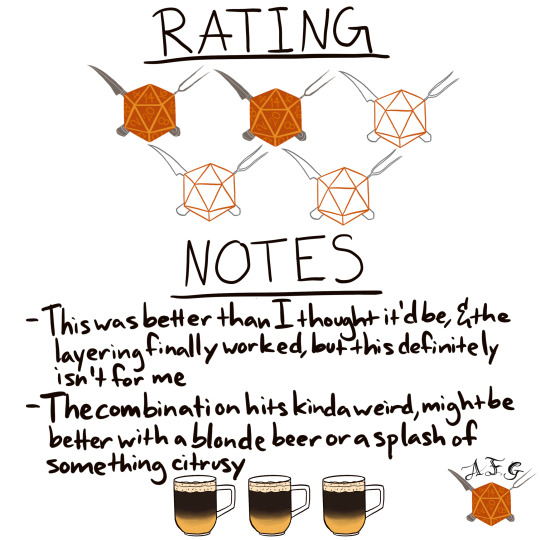


episode 132: claw claw snakebite 🦂🐍🍺
#dnd#heroes feast#dungeonmeister#dungeonmeister a drink masters guide#a finicky guide#a finicky guide to dungeonmeister#dungeonmeister drinks#dnd cookbook#dnd cooking#dnd drinks#dnd cocktails#recipe comic#ttrpg#ttrpg recipes#ttrpg cocktails#ttrpg drinks#dnd recipes#cocktail recipes#alcohol#dungeons and dragons#elixirs and ales#chapter 6#immense intoxicants#claw claw snakebite#two dice
15 notes
·
View notes
Text
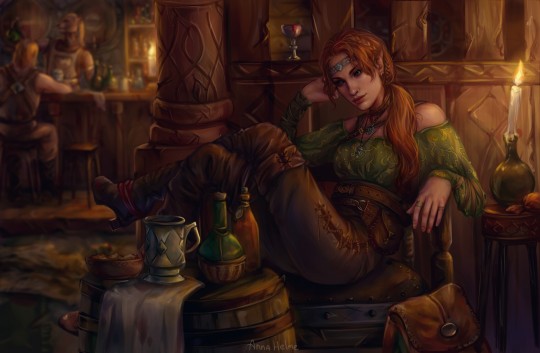
Bringing Your NPCs to Life: Tips for Creating A Believable Character Backstory in D&D
As a dungeon master, one of the most important parts of your job is creating believable and interesting NPCs (non-player characters) for your players to interact with. These NPCs can range from shopkeepers and guards to quest givers and powerful villains, and they play a crucial role in bringing your campaign world to life.
However, creating NPCs that feel real and relatable can be a challenging task. In this blog post, we'll be discussing some tips and tricks for creating believable NPCs in D&D. From giving NPCs a backstory to making them react realistically to the players, we'll show you how to make your NPCs feel like real, living people. So whether you're a seasoned dungeon master or just starting out, read on to learn how to create NPCs that will keep your players engaged and invested in your game.
Family and Relationships
Family and relationships are an essential element of an NPCs backstory and can give insight into their personality and motivations. For example, an NPC who has lost a loved one might be more likely to be driven by grief and a desire for revenge.
Family and relationships can also provide hooks for the players to interact with the NPCs, creating interesting and dynamic interactions. It can also create conflicts for the NPCs and the players, and the NPCs can have different types of relationship with the player characters like friends, enemies, mentors, allies, and more.
Additionally, NPCs can have complex relationships, for example, an NPC who has a love-hate relationship with one of the player characters. Knowing the NPCs family and relationships can also help the DM to create a believable dialogue, as NPCs can have different roles in the family or society and it can affect their actions and motivations.
Childhood Experiences
Another crucial component of an NPCs biography is their early life, which has the power to influence their personality, worldview, and moral principles. An NPC who was raised in poverty, for instance, might be more motivated by a desire for money and status. Childhood memories can also serve as springboards for the players to engage with the non-player characters (NPCs), resulting in engaging and dynamic interactions. The early experiences of the NPCs might influence their beliefs, values, and worldview, and it can also lead to disputes between them and the players.
In addition, NPCs early life experiences can affect their talents and aptitudes; for instance, an NPC who grew up in a conflict zone may be better at surviving and engaging in warfare. Additionally, it can affect how they feel and think. For instance, an NPC who experienced abuse as a youngster may struggle with trust or develop PTSD. As NPCs can have diverse perspectives on life and the world based on their experiences, knowing the NPCs early experiences can also aid the DM in crafting believable dialogue.
Education or Training
An NPCs education and training can give meaning to their talents and abilities and are a significant part of their narrative. Knowing what an NPC has studied or received training in might help determine their level of skill and knowledge. A skilled wizard NPC, for instance, may be more motivated by a quest for power and knowledge.
The players' interactions with the NPCs may be made more fascinating and dynamic by means of education and training. As the education and training of the NPCs may impact their views, values, and worldview, it can also lead to disputes between the NPCs and the players.
Additionally, NPCs education and training can shape their career and occupation, for example, an NPC who is a trained engineer might be more likely to be a successful inventor or architect. It can also shape their social status, for example, an NPC who has received a noble education might be more likely to be a member of the upper class. Knowing the NPCs education and training can also help the DM to create a believable dialogue, as NPCs can have different perspectives on life and the world based on their education and training.
Career or Occupation
An NPCs career or occupation can also play a role in shaping their backstory and provide context for their skills and abilities. Knowing what an NPC does for a living can give insight into their skills, abilities, and motivations. For example, an NPC who is a shopkeeper might be more likely to be driven by a desire for wealth and success. A career or occupation can also provide hooks for the players to interact with the NPCs, creating interesting and dynamic interactions. It can also create conflicts for the NPCs and the players, as the NPCs career or occupation can shape their beliefs, values, and how they perceive the world.
The NPCs career or occupation can shape their social status, for example, an NPC who is a noble might be more likely to be a member of the upper class. It can also shape their reputation, for example, an NPC who is a notorious thief might be feared or respected by other NPCs. Knowing the NPCs career or occupation can also help the DM to create a believable dialogue, as NPCs can have different perspectives on life and the world based on their career or occupation.
Life Events
Life events that shape an NPCs personality are also an important element of an NPCs backstory and can give insight into their personality, beliefs, and values. For example, an NPC who has experienced a traumatic event, like a war, might be more likely to be driven by a desire for peace and safety. Life events can also provide hooks for the players to interact with the NPCs, creating interesting and dynamic interactions. It can also create conflicts for the NPCs and the players, as the NPCs life events can shape their beliefs, values and how they perceive the world.
Additionally, NPCs life events can shape their skills and abilities, for example, an NPC who has been through a shipwreck might be more skilled in survival and navigation. It can also shape their emotional and mental state, for example, an NPC who has suffered a great loss might have trust issues or PTSD. Knowing the NPCs life events can also help the DM to create a believable dialogue, as NPCs can have different perspectives on life and the world based on their experiences.
In Summary
Giving your NPCs a backstory is an essential step in making them feel like real and relatable characters
A backstory provides context for an NPC's actions and motivations, making them more believable and interesting to the players
Family and relationships are an essential element of an NPC's backstory and can give insight into their personality and motivations
Childhood experiences are another important element of an NPC's backstory and can shape their personality, beliefs, and values
Education and training are an important element of an NPC's backstory and can provide context for their skills and abilities
An NPC's career or occupation can also play a role in shaping their backstory and provide context for their skills and abilities
Life events that shape an NPC's personality are also an important element of an NPC's backstory and can give insight into their personality, beliefs, and values
By including these elements in an NPC's backstory, you can create characters that feel real and relatable to your players
Additionally, it will help you to understand the motivations and actions of NPCs, making the game more interesting and dynamic
#geeklife#geeky stuff#geek culture#rpg ressources#rpg character#roleplaying ideas#dnd guide#dnd tips#dnd memes#dnd character#dungeons and dragons#dungeoncore#dungeon and dragons guide#dungeons and dragons tips and tricks#help guide#geek games#tabletop#dnd community#dungeon master#roleplaying games
107 notes
·
View notes
Text
So your players really like Strahd: A Guide to Evil Aligned Ravenloft 😈
Whether you’re going into a Ravenloft or a homebrew CoS game, or are one of the many CoS DMs that’s found their players successfully romancing Strahd and now wanting to work with him? This little post is here to help. So without further ado, let’s look at my tips for running Strahd for the more morally ambiguous party.
The most divisive part of running any evil aligned game in DnD, regardless of setting is running the “villain” NPC as an ally. This is largely because even in 2022, DnD is still in a very “good versus evil” mindset. Sure, we kind of have a more nuanced version with the greater acceptance of antiheroes, but rarely do you see DMs chatting about how their party has sold their souls and work for a canon big bad they’re supposed to kill. As someone with experience running “evil aligned” TTRPGS like Vampire: The Masquerade, I’d like to shatter that mindset. The only differences with an evil aligned game are 1.) Insuring your party fully OOC understands that this is fucked up, and 2.) Running the “villain” protagonist.
Running Strahd as an ally/boss/lover/etc. can be daunting because DMs are usually scared of whitewashing how horrible he is, or somehow inadvertently “praising” his actions. If you are running Strahd only with the as-written 5e instructions for playing this villain, you will not get far- because 5e has only prepped you for running him as an antagonist! 5e is as guilty as its DMs when it comes to only jotting down the notes you NEED to run things as written. 5e is the equivalent of me jotting down how Sam Snorkel the goblin likes shanking people without taking the time to write up his tragic backstory, because the PCs will kill him in one shot any ways. When running Strahd as an ally/boss/lover, players are going to be getting to know him- meaning you’ve got to flesh out more nuance in your game. None of his past is clear cut good and evil- and the players will eventually grow to see that. The trick is maintaining the balance of players understanding his past actions without condoning them.
A perfect example of how to maintain this balance as a writer is to look at Billy Butcher from the Amazon prime series The Boys. Butcher is a sadistic, mildly psychopathic, man with anger issues and severe childhood trauma. In any other story he would likely be the villain, but our titular audience POV character, Hugh, is allied with him and never befriends this monster throughout the course of the show. The show walks the line of making Butcher sympathetic, yet not excusable, by drip feeding information about his past to the audience to explain his horrible actions. You don’t get the trauma dump in episode one, something that might make the audience ignore his faults. Instead you watch him take two steps forward and one step back. For every small glimpse into his tragic past you see the horrendously unhealthy repercussions of that past in the form of yet another sadistic or downright evil act. This, my friends, is the gold standard for running Strahd; Drip feeding his past as the party gets to know him, subtly showing how truly horrible his life was (something even he represses to an extent) through nuanced trauma responses or offhand stories about childhood abuse (you know, the ones every depressed person tells and suddenly the room goes quiet because apparently knowing someone’s mood by their footsteps isn’t normal). For every sorrowful revelation, there should be a horrifying realization, a sadistic action, a show of how corrupted he’s become. But more than just blandly info dumping or having some evil exposition, the trick is to make players UNDERSTAND how fucked up an action is/was. As I tell my party, it’s one thing to know Strahd killed Sergei, but it’s another to UNDERSTAND how horrible that is.
As an example from my game, my parties honestly were kinda on Strahd’s side when they found out he killed his little brother. All the PCs are older siblings or have had to deal with snotty little clerics and were sympathetic towards the desire to shank said snotty siblings or clerics. However, this callous mindset changed as they began to UNDERSTAND Strahd’s actions, as their simple knowledge of the event connected to the emotional gravity. I did this through several encounters with Sergei’s ghost and with several small encounters with Strahd himself. Knowing Strahd killed sergei was one thing, physically watching the light in Sergei’s ghost’s eyes die as his trust in his brother shattered- or seeing Strahd callously lash out at the disoriented and sobbing apparition- made them UNDERSTAND the emotional nuance and gravity to his actions. When is was said and done, the evil PCs are still in Strahd’s corner- but they recognize how horrible the situation is, and their relationship with Strahd has an added layer of tense nuance.
Billy Butcher from The Boys is a great guide for keeping your Strahd sympathetically inexcusable, but let’s look at how to actually PLAY Strahd as an ally. Because knowing and understanding his past is something even a traditional “good” party can do. It’s another thing entirely to play Strahd in the context of an ally. This, my dears, is where the mafia comes in. Shows like Peaky Blinders or Boardwalk Empire are great templates for playing Strahd as an allied villain. These shows teach us how to play villains that will torture, murder, and torment anyone who crosses them- while still making dinner for the family after a long day of crime. Players who go above and beyond to show their loyalty to Barovia and their competence as underlings will quickly find themselves in Strahd’s good graces. Keep this up, and they will find themselves gaining one of the most terrifying gifts in Ravenloft: Strahd’s loyalty. Like any outsider to gain standing with any crime family in the history of crime dramas, sometimes the adoration and loyalty of one’s benefactor is more of a curse than a blessing. Because once Strahd likes you, suddenly the person who stole your wallet has been exploded in front of you (out of love, of course). Strahd’s show of loyalty and care is twisted, sadistic, horrifying, and utterly untameable by the party. But scarier still is the prospect of shattering that loyalty. Because Strahd does not give his affection or loyalty easily, and sees it (rightly so) as one of the biggest boons in Ravenloft. Squandering that, double crossing him, or letting him down are great ways to make Strahd your party’s worst nightmare.
…But not their worst nightmare in the respects or a traditional game. No no no, Strahd is a very practical lawful evil villain who isn’t going to wholly throw away or kill a useful PC unless he absolutely has to. No, there’s fates worse than death when you’re Strahd’s friend or underling. Letting Strahd down, failing him on a mission, will result in a “we all make mistakes, don’t repeat them” and then a “this isn’t personal, just business” punishment. I’d like to think even Rahadin isn’t wholly exempt from Strahd’s military esque mindset when it comes to “business”. He loves his family and his friends, but it’s unfair to exempt them from repercussions when they fuck up on the job. While the severity may be toned down for people he cares about more, you’ll still see him strip privileges, remove “distractions”, or temporarily handicap or maim those who let him down. People who repeat a mistake, who “take advantage” of leniency, will quickly find themselves on his shit list- a position they’ll have to work hard to recover from. Of course, if someone’s usefulness begins to be outweighed by their mistakes… aha- then they’re fucked, though at least he might still give the mercy of a swift disposal.
Now that we’ve seen how he deals with the business side of a relationship- let’s take a look at how he deals with genuine betrayal. TL;dr: not well. Going behind his back or disobeying orders for a perceived “greater good” will result in a breaking of trust and pretty severe repercussions, but it’s something you can recover from- depending on the severity. The ONLY thing that’ll likely give an immediate ejection from “the family” is to backstab him. Now this can be anything from actually trying to fuck him over, to defecting to an enemy domain, to trying to use him to escape Barovia. Anything in this vein will result in the most drawn out and personal of torments, such as being buried alive or slowly peeled apart! Fun times.
Alright my dears, for the last bit of this rambling post, I want to give some tips for how to use these tools to make play exciting and tense. In a “normal” game, the tension is generally just in fighting the villain. In an evil aligned game, however, players are under far more pressure- and this is especially true when it comes to Strahd. Because not only do they have to worry about fighting off the game’s antagonistic forces (I.e. Strahd’s enemies), they have to worry about maintaining their relationship with Strahd. Because being Strahd’s friend is like being a warlock or even a cleric, in some respects. When it’s good? It’s amazing. When it’s bad? It’s really REALLY bad. Players are making the exchange of moral stability and relying on “good” for fanatical devotion, protection, power, and volatility when Strahd becomes a benefactor or ally. This duality and tension is the bread and butter of any Vampire: The Masquerade game, especially games focusing on the more brutal factions like the cultish found family of The Sabbat, or the mafia esque Giovanni. I HIGHLY recommend looking at the VtM 20th edition or Revised Edition (not V5, V5 is trash) rulebooks* or guides to either faction for some excellent ideas on running Strahd in the context of an evil game and/or as an ally.
(As always, thank you for reading this far! Feel free to comment, steal, disagree, etc. I’d like to note once again that EVERY rendition of CoS/Ravenloft and Strahd is valid! This is just my take on things, and a guide for more evil aligned games- so I’d ask for the same respect to be extended if you’re a more traditional black-and-white morality DM.)
*Note: If you’d like help “finding” these books, PM me. I’ll “point you” in the right direction.
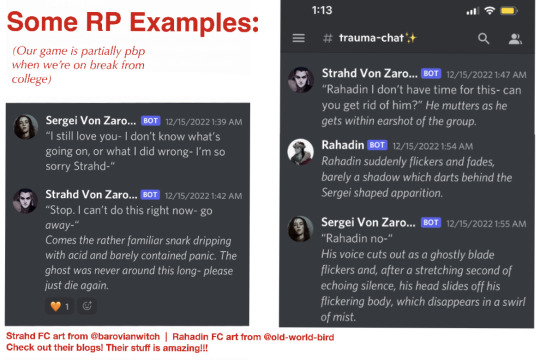

#Catslug’s Guides#It’s ok to be evil (in DnD)#strahd#strahd von zarovich#ravenloft#curse of strahd#dungeons and dungeons#dungeon master#dnd guide
119 notes
·
View notes
Text
Every time I see someone say “well the eggs HAVE to die for the lore to progress,” I get frustrated. Why? For what? Part of this Dungeon Master-style storytelling is that sometimes your players will go off the path, and sometimes they’ll straight up break the campaign. It’s happened to me before. My DM didn’t retcon our decisions or railroad us into making the choices he needed us to make. He rewrote the ending. And it was an amazing ending.
It seems pretty clear that the admin team had no idea just how much of a hit the egg event would be. These players have all had their own, personal streaming buddy for the past two months to get attached to. But the story apparently dictates that the eggs have to die, so no matter what the players want, and no matter how hard they try to prevent it, the eggs have to die? Why? What is so necessary about dead eggs that the story can’t be reworked to give the players more agency in whether or not a huge chunk of their character, not to mention gameplay gets taken from them?
#qsmp#I've been watching a lot of dungeon masters guides lately#and I hear a lot about honoring your players decisions#the pomme thing does the exact opposite#it undermines the players decisions#And I hate that any time I go to watch a stream and see on twitter that an egg has died#I completely lose all motivation to watch anymore#just so frustrated tonight#and tired of hearing 'well it sucks but it HAS to happen'
43 notes
·
View notes
Text
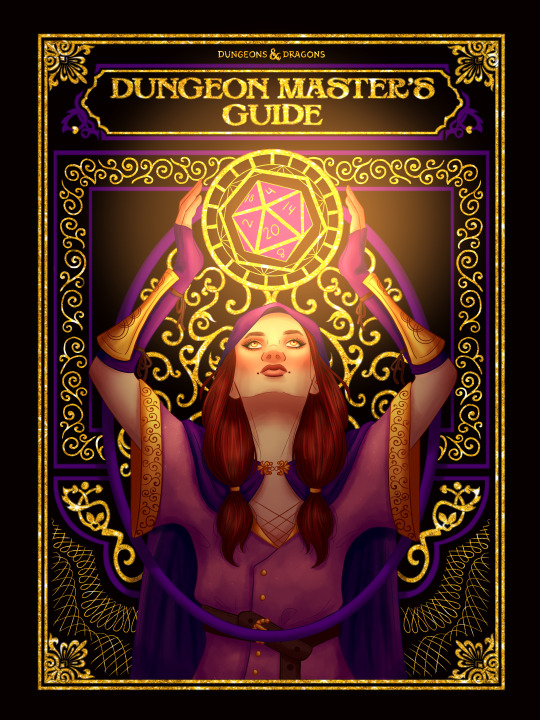
Day 14 of Repostober is a re-cover for the DM's guide I made for my bf 2 Christmases ago!
#taraart#repostober#dnd#dungeons and dragons#dungeon masters guide#wotc#art#illustration#artists on tumblr
8 notes
·
View notes
Text

There's always trouble when the Hornsup clan meets the Hornsdown gang. (Jeff Easley, AD&D 2e Dungeon Master's Guide, TSR, 1989) The pale blue maps in early modules were charming. The pale blue art in 2e books was a bizarre editorial choice that lasted years. (Previously)
#D&D#Dungeons & Dragons#Jeff Easley#barbarian#barbarians#AD&D 2e#D&D 2e#dnd#horned helmet#battle axe#DMG#Dungeon Master's Guide#TSR#Dungeons and Dragons
256 notes
·
View notes
Text
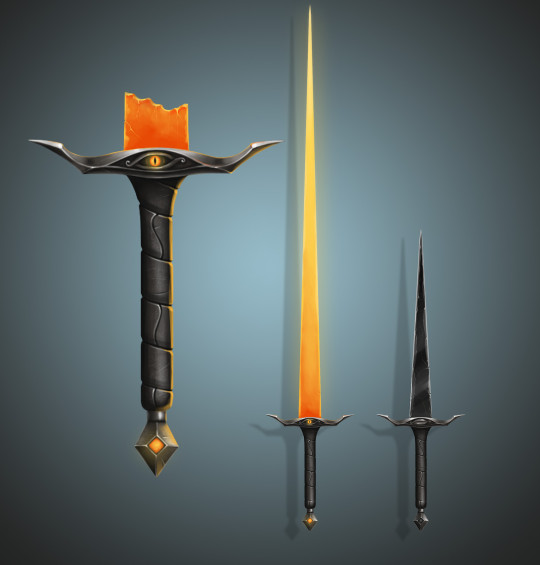
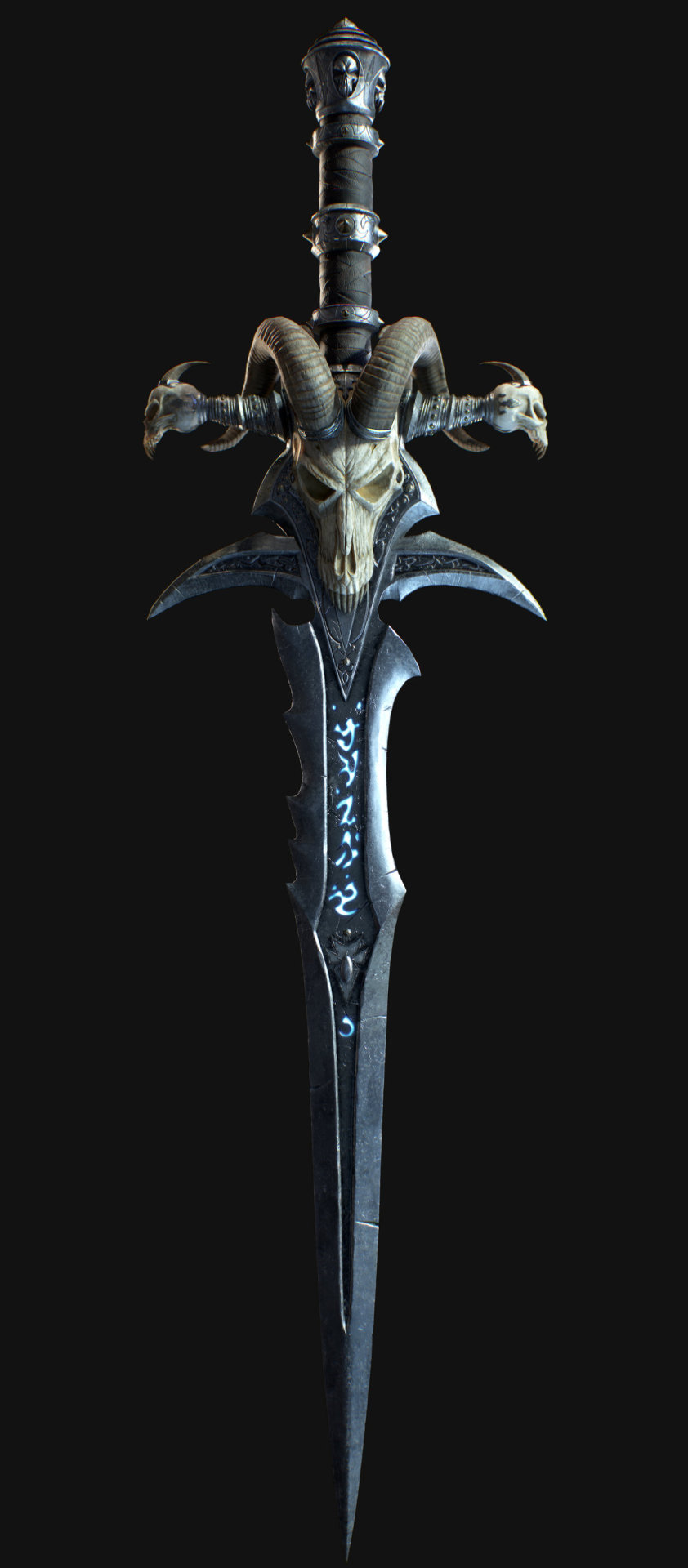
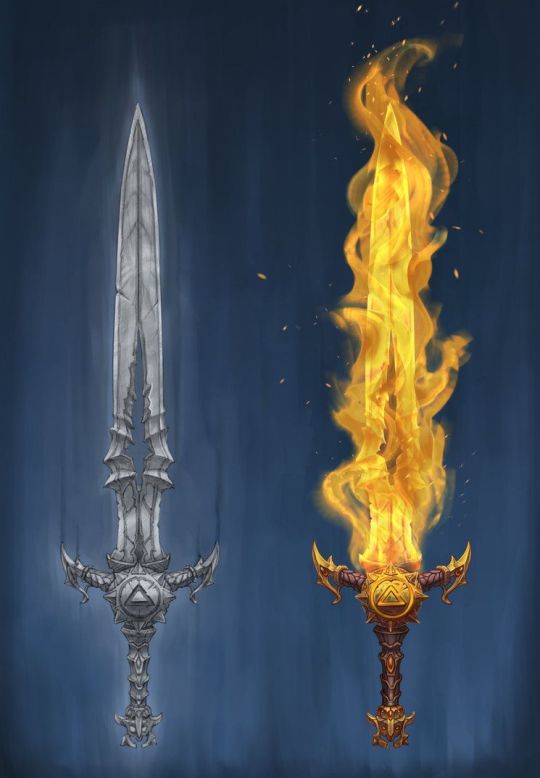
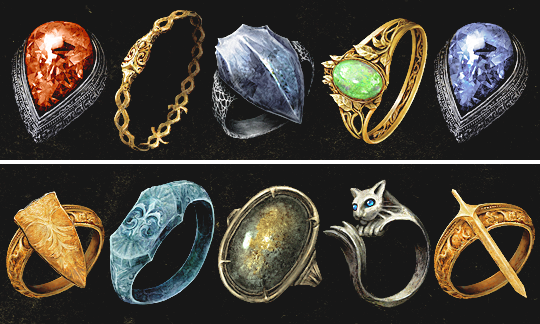
#dnd#dnd 5e#ttrpg#dungeon master's guide#dungeons and dragons#dungeon master#fantasy art#dm inspiration#bardic inspiration
569 notes
·
View notes
Photo
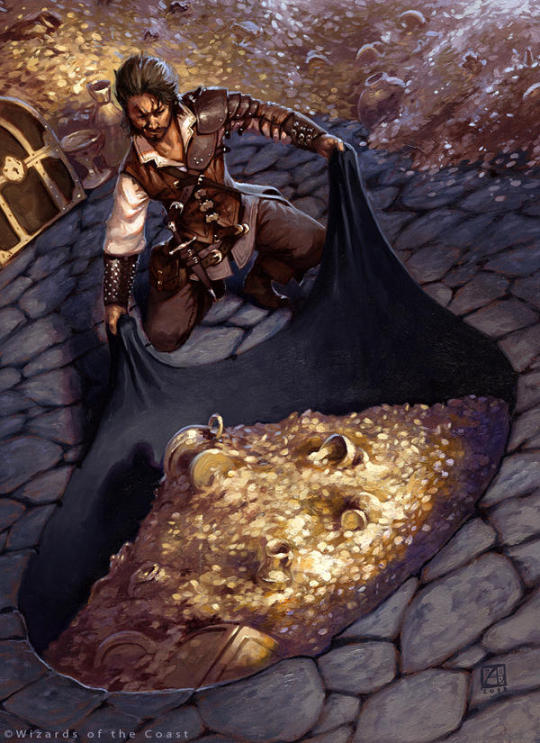
Dungeon Master's Guide (5th Edition) - Portable Hole by Alex Stone
#Dungeons and Dragons#Dungeons & Dragons#D&D#5th Edition#Dungeon Master's Guide#Portable Hole#WotC#Wizards of the Coast#Alex Stone
338 notes
·
View notes
Text
SOMEONE CALL THE UNIVERSITY STUDENTS!
Are you tired of your players always taking too long to solve a mystery? Or have they never touched a book and don't even know how to do it in a fantasy setting?
Well, your problems are over! I present to you the DMing asset that I like to call "Someone call the university students!"
Based off a popular idiom in my country, all you need for this asset is to introduce an experienced NPC before your playes go on a little treasure hunt. Ranging from a detective to an archmage, they can be anyone!
Mainly they are just there so your players don't get extremely stuck and eventually get bored! So, put that quirky librarian that just knows a little too much about dragons because they decided to major in Draconic Ages in University and just so happens to be nice enough to help the party!
And you wanna know the best part?
They don't need to tell them everything or be entirely correct (C'mon, they are undergraduates, they don't know their own class schedule). So, use it as your heart desires!
As a bonus I will present to you my top 3:
Wizard student that is paid minimun wage at the local library and absolutely loves to read the monster section, fictional and factual, and occasionally mixes up the two (Use it when you are mad at your players)
Old fella that lives close to the crime scene, and has seen some shit, but doesn't like cops so they only talk to the party about it (Use it when they are about to incriminate the wrong person and you don't want them to wreck the game by accidently sending the Grand Minister to prison)
Shop worker that has literally nothing else to do other than listen to tales from travelers, as a hobby she keeps tabs of all the ruins on the area and, for the right price, might help the party (Use it in any circumstance).
#dnd#ttrpg#dungeon master#dming tips#dungeon master guide#dungeons and dragons#roleplaying game#game master tips#game master assets#gming#npc ideas#by me#npc tips#player tips#writing#fantasy writing
39 notes
·
View notes
Text
i DMed my first campaign last night, it was genuinely the most fun i've had in a while,,, we are using explorers guide to wildemount but even though its premade everyone is liking it a lot. that being said, any roleplay tips for first time players?
#question#dnd#d&d#dungeons and dungeons#explorers guide to wildemount#wildemount#dungeon master#game master#ttrpgs
102 notes
·
View notes